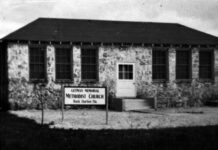In a letter written dated March 3, 1935, poet Robert Frost wrote: “The oldest person I could find in the Key West grave yard yesterday (Sunday) was a veteran of the war of 1812 who died in Key West at 108 years of age. But may have lived to be older than that. His inscription wound up ‘A good citizen for 65 years.’ He must have been a bad citizen for 43 years then. That’s what undermined him and shortened his life.”
The tombstone honored Thomas Romer, the long-lived African Bahamian who was born in Nassau, New Providence, in 1788. The marker also reads, in part, “In memory of Thomas Romer, Privateer in the War of 1812.” He served, in his way, at the behest of the U.S. Navy.
During the war, Romer worked as a privateer, a form of legalized, or government-sanctioned, piracy.
A privateer worked under the authority of a letter of marque. A host country issued letters of marque that authorized private citizens to attack ships from another country during times of war. A privateer was permitted, by law, to attack ships that were flying flags from countries with which the host country was at war. In 1812, the United States was warring with Great Britain, and Romer was working to disrupt the activities of British ships.
Working as a privateer was like working as a pirate, but with a few outstanding caveats. While both pirates and privateers essentially performed the same job and did so in the same conquering manner, a pirate attacked who they wanted, and the captain and crew retained the entire prize. The privateer used his own ship, hired his own crew, and paid his men out of his own pocket. In exchange for the right to attack ships, a percentage of any prize the privateer could secure was given to the government sponsoring the letter of marque.
Romer settled on Key West during its infancy as an American territory, sometime around 1826. He then began to fulfill the other phrase etched into the marker at his gravesite: “a good citizen for 65 years.”
While writing for the Miami Herald in 1969, Wright Langley wrote that Romer operated a grocery store that catered to the ships arriving in the harbor during his many decades in Key West. He provided fruits and other food stores to Navy ships that pulled into port, as well as to private and commercial vessels. It can be imagined that at least some of the produce he sold came from the farm owned by Sandy Cornish and his wife, Lillah. The two arrived in Key West in the 1840s and purchased a farm near Truman Avenue and Simonton Street circa 1850. Cornish, who bought and fought his way out of slavery, became one of the island’s richest men.
According to Jefferson B. Browne, who wrote the fantastic peek into the island’s early history, “Key West: The Old and New,” published in 1912: “Old Uncle Tom Romer was known to every officer and man in the Navy of the old days.”
There is a contemporary account of Romer’s funeral service printed on a strip of newspaper print that is undated. The author’s name is omitted, though it was clearly written from not just a Key West resident but by someone who knew Romer: “Poor old Tom Romer is no more. The laughing, genial face of ‘Old Tom’ is (illegible) death. Never to flash with humor, or his tongue to quaintly tell with philosophical resignation his sorrows and mistakes during a century of life. How many years he lived no man can tell, he told the writer of this notice barely a year ago, that he was one hundred and fourteen years old. … Tom’s body was seen at the house of his daughter Nora Vickers and was transferred, followed by his numerous friends, to the Baptist Church on Thomas Street, where the funeral activities were conducted by the Pastor, Revd. W.C. Vesta, Huger, Butler and Weeks. His friends were numerous and highly respectable; their dress was appropriate and their deportment admirable. The respectable portion of our colored people cannot be surpassed anywhere, in these particulars; the absence of white friends, and we know he had many, was commented upon.”
The writer ends his account with a nod to Shakespeare. “Alas poor Tom, I knew him, Horatio, a fellow of infinite jest, of most excellent fancy. Peace to his ashes.”
























